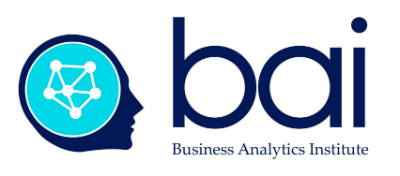Data Science’s Dirty Little Secrets
Defining the knowledge and skill set of today’s data scientist is proving to be a quite a problem despite the considerable number of contributions on the subject.[i] This challenge hasn’t kept trade specialists from projecting an monumental gap between the supply and demand for such “specialists” worldwide [ii]; while LinkedIn’s 2017 survey of the ten most marketable skills highlights statistical analysis, data modeling and data presentation[iii]. Ever since William Cleveland proposed the term “data science” in 2001 as a junction between the fields of computer science and statistics — the superlatives of “superstar” “ninja rock star”, and “sexy unicorns” have done little to help business and higher education understand the specifics of the trade. What exactly sets the data scientist apart from the rest of the field?
There are several reasons why the industry has had so much trouble defining the role. Most organizations have tended to use the term as a catch-all phrase that seems to include statisticians, business analysts, and data engineers. The rapid evolution of statistical tools and methodologies over the years hasn’t made the task any easier: the standards of expertise are becoming increasingly ambitious. The marketing of the data scientist isn’t much different from other technology related trades: the IT industry has historically demonstrated a “flavor of the month” mentality in continuously rebranding traditional job titles. After reviewing the requirements of current job openings for data scientists one should wonder whether there is anything that a data scientist can’t do.
Given this grocery list of skills and competencies, perhaps a more promising approach would be to list what a data scientist is not. Chuck Russel’s contribution here raises a number of valid points.[iv] He suggests that the title doesn’t come with an advanced degree in mathematics, econometrics or decision science. It’s even more difficult to qualify a candidate as a data scientist based on their use of the vendors’ training videos of statistics platforms. The certificate of participation in a boot camp or specialized online course doesn’t distinguish a professional. Data scientists aren’t as much experts on manipulating data as professionals who practice solving organizational problems.
If expertise on data, platforms and programming isn’t sufficient, what are the specificities of a data scientist? From our point of view, it all begins with the candidate’s understanding the logics of specific markets and industries. Data Science is also a frame of mind— data scientists are continuing scanning their physical and digital environments for problems to be solved. They day job consists of exploring the nature of the problems to be solved, qualifying the data at hand, identifying which methodologies can produce better choices in given contexts, and transforming data into insightful action. They don’t isolate themselves in front of a computer, but as Lee Baker suggests, they serve as detectives of the realities of the company and its clients, as well as mediators between the technical and operational services inside the organization.[v] In sum data scientists aren’t experts at all, but eternal students of the human activity of decision-making.
This focus on decisions rather than data offers some insight into what might set a good data scientist apart from the field. There is no substitution for trade knowledge — understanding how markets function is the alpha and the omega of data science. Understanding how people “look” at data, and the heuristics and cognitive biases implicit in decision-making is as important as the data itself. Looking for problems to solve is the prerequisite to finding solutions. Focusing on telling stories by the numbers is the key to promoting impactful decisions. Data science isn’t an occupation title, it’s the mindset that an organization brings to work each day.
Improving managerial decision making is the heart and soul of the Business Analytics Institute. In our Summer School in Bayonne, as well as in our Master Classes in Europe, we put data science to work for you and for your organization. The Institute focuses on five applications of of data science for managers: working in the digital age, data-driven decision making, machine learning, community management, and visual communications. Data-driven decision making can make difference in your future work and career.
Originally published on Medium.com
Lee Schlenker is a Professor at ESC Pau, and a Principal in the Business Analytics Institute http://baieurope.com. His LinkedIn profile can be viewed atwww.linkedin.com/in/leeschlenker. You can follow us on Twitter athttps://twitter.com/DSign4Analytics
___________
[i] See for example Smith, A. (2016), How to Become a Data Scientist, Experfy
[ii] Cap Gemini (2017), Mind the Data Science Skils Gap
[iii] Ficher, C. (2016), The top skills that can get you hired in 2017, LinkedIn
[iv] Russell, C. (2015), You are not a data scientist, Medium
[v] Baker, L. (2016). 50 Shades of Grey — the Psychology of a Data Scientist, ChiSquared


